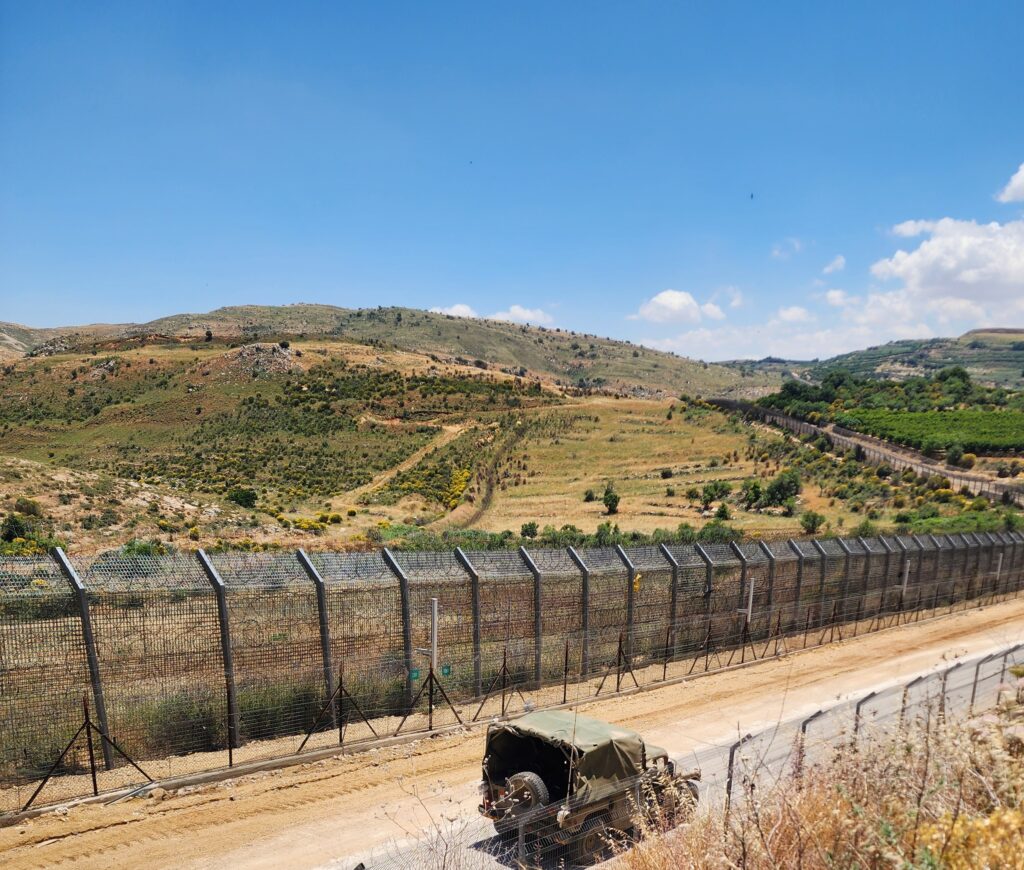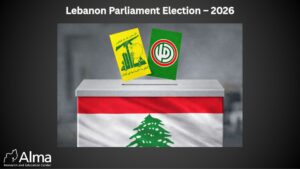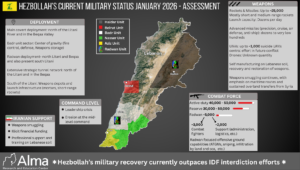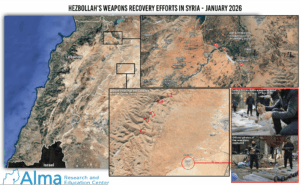By: Dr. Zoe Levornik.
In the face of Syria’s ongoing instability, Israel is trying to balance the need to maintain security along the border with the desire to promote diplomatic relations.
The latest round of violent clashes in Syria, which began in mid-July 2025 and ended with a highly fragile ceasefire, once again led to Israeli intervention through airstrikes, aimed at protecting the Druze population in Suwayda and enforcing the demand for the demilitarization of southern Syria.
Criticism of Israel’s strategy in Syria followed shortly. From various arguments in the media, it emerges that Israel seeks to weaken, and even topple, the regime in Damascus because a united Syria poses a threat to Israel. After more than a decade of civil war, Syria is a country fractured from within, and its reunification constitutes a significant challenge for the new regime.
The rise or fall of the regime in Syria depends on its ability to govern, enforce, and serve all of its citizens. Israel’s policy is not aimed at toppling the new regime, but it does work to thwart threats in cases where the regime lacks either the capability or the willingness to act.
Al-Sharaa was also quick to accuse Israel of undermining the stability of the government and attempting to dismantle Syria. Blaming Israel is a convenient pretext for the Syrian leader, who at present is failing to unite all the factions in his country and is facing growing internal criticism. For example, on July 9, Hikmat al-Hijri, one of the most prominent figures in the Druze spiritual leadership, made statements against the al-Sharaa regime. His words were echoed by other leaders such as Jarboa and al-Hanawi, who until now had been considered moderate toward the regime.
Recently, al-Sharaa also received the findings of the investigative committee he had established to examine the events that took place in March 2025 against the Alawites—an investigation that concluded regime forces had no part in the incidents and will likely end there. At this stage, the management of Syria’s internal problems by the government is, to say the least, far from satisfactory.
Israel is not acting to undermine the regime, but it exercises great caution and relies not on declarations but on actions on the ground. There are good reasons for Israel’s skepticism and concern regarding the new regime, not only the fact that it is composed of individuals who emerged from terrorist groups with an extreme Islamist ideology, but also the many challenges Syria is currently facing, both internally and externally. Just as quickly as the new regime rose to power, it could also collapse. The instability and uncertainty are reason enough to continue maintaining vigilance along the Israel–Syria border.
It has also been argued that Israel’s strategy is inconsistent or contradictory. On the one hand, Israel demands that the Syrian regime enforce order and protect minority populations; on the other hand, it insists on the demilitarization of southern Syria. At first glance, the question arises as to how Syria can maintain security without security forces. However, this is a misunderstanding that requires clarification:
Israel demands that there be no military forces in southern Syria. Enforcing law and order among Syria’s civilian population requires police forces armed at most with light weapons—not military forces equipped with medium and heavy weapons.
Israel has responded, and will continue to respond, when army soldiers are deployed with tanks, armored personnel carriers, rockets, and medium or heavy machine guns to deal with disputes between residents and/or when such weapons are identified in southern Syria. For example, on July 8, Israel struck a vehicle carrying a heavy machine gun of the above type that had been identified in the area.

The recent crisis indicates that the new regime still struggles greatly to manage localized internal crises in a calculated manner, while preventing escalation and chaos, as we also saw last March.
Israel also intervenes in order to provide humanitarian aid. while Israel faces criticism that this is just an attempt to divert international attention and improve Israel’s image, international organizations, including the UN and the Red Cross, struggle to provide aid to the population due to security difficulties. The need for humanitarian assistance in conflict zones is not up for debate, and even more than a week after the clashes, there were reports from the affected villages that the aid they received was insufficient.
Israel feels a sense of commitment to the Druze population and therefore responds to requests for help despite the criticism—not in order to avoid it.
Israel is not wavering between strategies; it is operating along two parallel tracks: opening channels of communication and promoting arrangements with the Syrian regime, currently limited mainly to security matters, with the aim of reaching understandings and preventing dangerous escalation. At the same time, Israel monitors the situation on the ground and acts in a targeted manner to thwart threats at an early stage. Despite much talk and many hopes for a new Syria and for normalization with Israel and the West, such a process—if it occurs—will take a long time and depends directly on the process of consolidating al-Sharaa’s rule in the country. Likewise, the establishment of relations with Syria should also be gradual and assessed according to the regime’s conduct in the long term.







One Response
Dear Zoe,
There can be no balance between security and diplomatic relations. We MUST demand the former and define the latter in clear terms. Israel is a Sovereign Nation. Liberty and security are non-negotiable. Justice has no borders, and must be executed throughout the earth.
Lev. 25:10 “Proclaim Liberty Throughout All the Land unto All the Inhabitants Thereof. “